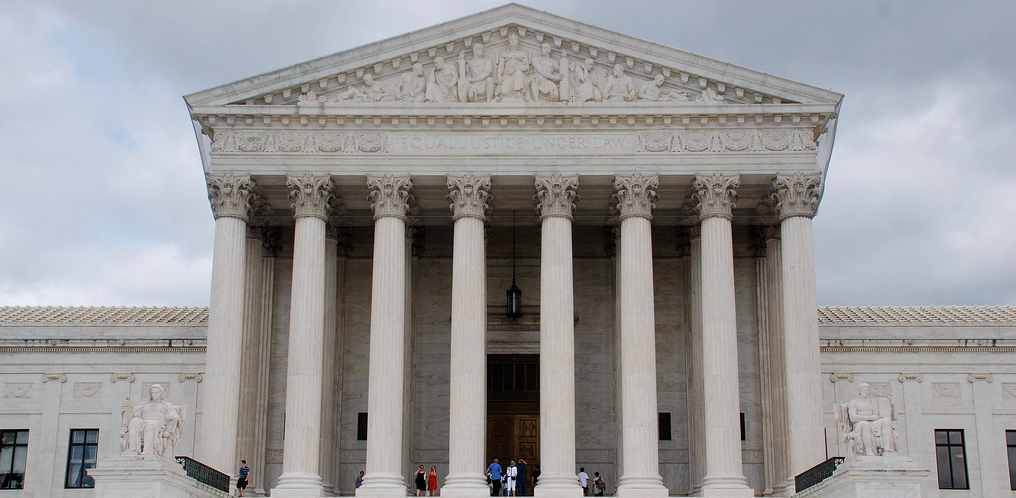Supreme Court Hearing Arguments On Hobby Lobby’s Challenge To Contraception Mandate

(afagen)
The law does provide exemptions for certain businesses owned by religious groups, but the personal religious beliefs of the owners of for-profit corporations are not a consideration, leading some owners to claim their statutory rights are being violated.
At the heart of the challengers’ argument is the 1993 Religious Freedom Restoration Act, which states that “Government shall not substantially burden a person’s exercise of religion even if the burden results from a rule of general applicability, except… if it demonstrates that application of the burden to the person is in furtherance of a compelling governmental interest; and is the least restrictive means of furthering that compelling governmental interest.”
According to the challengers in the case before the Supremes today, the Affordable Care Act requires them “to do precisely what their religion forbids them or face draconian consequences — including millions in fines, private lawsuits and government enforcement actions.”
However, the Obama administration counters that this legislation was meant to protect individuals and not the owners of corporations. Furthermore, contends the White House, the contraception mandate places no personal burden on business owners, as they are not the insurer and it is the employees’ choice as to whether they use that coverage. After all, just because one’s health insurance covers contraception, it does not require the insured to obtain or use contraception.
In the Hobby Lobby case, a federal appeals court agreed with the business owners, citing the Supreme Court’s controversial ruling in the Citizens United case, which found that corporations have the same political speech rights as individuals.
The second case, involving Pennsylvania-based Conestoga Wood Specialties, went the other way when it went before a federal appeals panel. In that case, the appeals court ruled that the business, owned by a Mennonite family, was obliged to obtain the coverage as set out in the Affordable Care Act. This appeals court also criticized the ruling in the Hobby Lobby case, saying that decision was made without any grounding in existing case law.
“Even if we were to disregard the lack of historical recognition of the right, we simply cannot understand how a for-profit, secular corporation — apart from its owners — can exercise religion,” wrote a judge in the Conestoga appeals court ruling.
The Supremes’ ruling on this matter will come later in the year.
At Supreme Court today: Health-law cases mix questions of religious freedom, worker rights [Washington Post]
Want more consumer news? Visit our parent organization, Consumer Reports, for the latest on scams, recalls, and other consumer issues.

